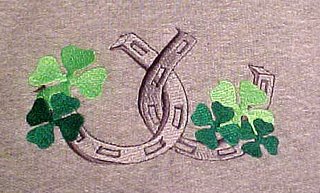 Luck is a concept, which is becoming increasingly alien to us in the 21st century. It is a much cherished, much loved but often much loathed word. If we apply Freudian analysis to this word we may be able to understand why and how it affects us. “A little far-fetched, but that's Psychology." These are the words of John R.Hayes, a Cognitive Theory Professor. We must however, understand that there are two sides to the coin that we are about to toss on a Freudian altar. Luck is said to be ‘bad’ as well as ‘good’ i.e. to say that it may affect us positively as well as negatively.
Luck is a concept, which is becoming increasingly alien to us in the 21st century. It is a much cherished, much loved but often much loathed word. If we apply Freudian analysis to this word we may be able to understand why and how it affects us. “A little far-fetched, but that's Psychology." These are the words of John R.Hayes, a Cognitive Theory Professor. We must however, understand that there are two sides to the coin that we are about to toss on a Freudian altar. Luck is said to be ‘bad’ as well as ‘good’ i.e. to say that it may affect us positively as well as negatively.So what is good luck? I would like to believe that good luck is nothing but the ultimate, nevertheless, unexpected fulfillment of man’s wants. I use the word ‘wants intentionally to indicate a certain characteristic of ‘good luck’. What we want is not always what we get; what we do get in the normal course of life is usually what we ‘need’. ‘Wants’ so as to say are our desires but not our necessities. Wants do not have limitations i.e. to say they often do not have their feet planted upon the ground of practicality. So when such a desire is fulfilled without much ado on the part of person, we usually accredit it to ‘good luck’. I have heard people like Elizabeth Taylor consider themselves ‘lucky’ on hindsight at the twilight of their lives. What we observe here is that good luck is invariably connected with fulfillment. One feels lucky in life if he achieves all he wants to or if he attains the love he or she has pined for or to add a whole new dimension to it, one feels lucky if his religious ambits are satisfied
Luck is like water. It takes up the shape of the vessel it lands up in. What I mean to say is that the definition of luck or ‘good luck’ varies with the point of view of those who experience it. Sir Winston Churchill was so moved by what he considered his ‘good luck’ that he exclaimed, “There is nothing more exhilarating than to be shot at by a failed gun.
No comments:
Post a Comment